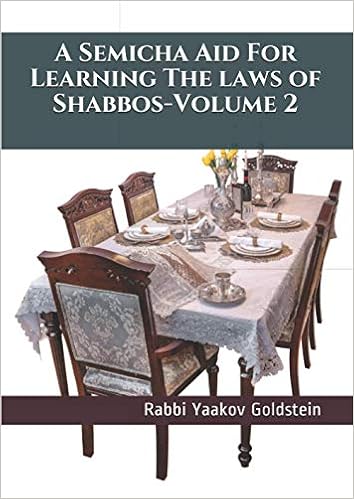
To purchase this Sefer, click here
7. Destroying not for the sake of building a better building:
First Opinion:[1] [According to the opinion which exempts one from work done not for the sake of its body this not only applies when he has no intent at all to do the work for the body of the item but furthermore] one who destroys a building with intent to return and build it, or one who tears with intent to return and sew, is not Biblically liable unless his intent is that the latter building be greater than the former, and so too in sewing the [torn] cloth [his intent must be that it get improved more than it was originally prior to the tearing]. As without this destroying and tearing, it is completely impossible to fix the building and cloth in order to improve it.
The Rabbinical prohibition:[2] It is However, a Rabbinical prohibition to extinguish, build or tear [even when not done in order to improve].
Asking a gentile to extinguish, destroy or tear in a time of need:[3] Based on the above that destroying without intent to better an item is only Rabbinically forbidden it is [thus permitted] to tell a gentile to do so in a distressful situation, as it is a Rabbinical decree upon a Rabbinical decree which is allowed to be done in a distressful situation
Other Opinions-Even by destroying no need for improvement:[4] There are opinions which say that even by actions of destruction it is not necessary that the rebuilding be better than the way it was originally.
Other Opinions-One is liable for work even if not done for use of its body:[5] All the above is in accordance to those which say that an action which is not done for the need of its body one is exempt for and is only Rabbinically forbidden. However, there are opinions which argue on this and say that even work which is not done for the need of its body one is Biblically liable for.
The Final Ruling:[6] [Due to the above lenient opinion one] therefore does not need to reprimand people who are lenient [to ask a gentile in a time of distress to destroy an item when they do not plan to rebuild it in a better way] being that they have upon whom to rely. However, every person should be stringent upon himself like the stringent opinion which is the main [Halachic] opinion.
| Summary: Some rule one is only liable for destroying if he does so in order to rebuild it in a better way. Others rule he is liable if he plans to rebuild it even if he rebuilds it to the same state it was in when destroyed. Others rule he is always liable even if he does not plan to rebuild it. One of the ramifications is, may one ask a gentile to destroy an item in a case of great need if one plans to rebuild it after Shabbos to the same state. Practically, one is to be stringent against doing so, although those that are lenient do not need to be protested.
|
_________________________________
[1] Admur 278:2; So rules Tosafus Shabbos 94a
[2] Admur 313:17
[3] Admur 313:17
[4] Admur 278:2; so rules Rashi Shabbos 31
[5] Admur 278:3; So rules Rebbe Yehuda and Rambam
[6] Admur 313:17
Other opinions: Some Poskim rule one must protest against those that are lenient to ask a gentile to remove the window. [Taz 313:5; M”B 308:38]


Leave A Comment?
You must be logged in to post a comment.